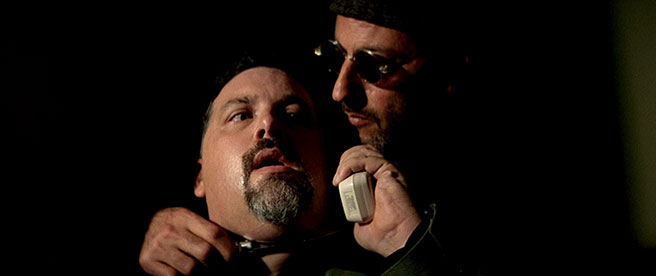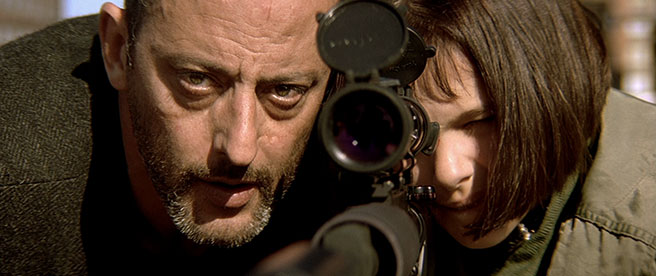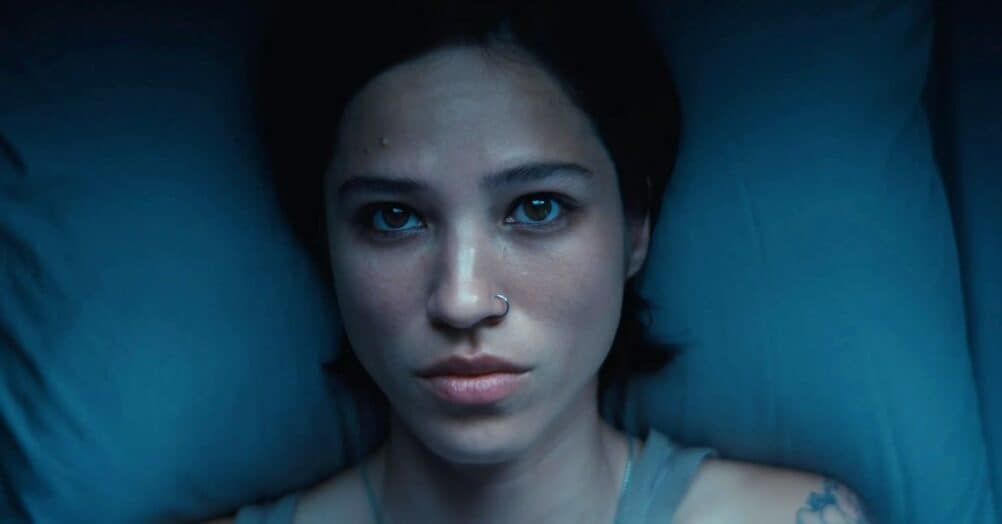Last Updated on August 2, 2021
 Why It Works is an ongoing column which breaks down some of the most acclaimed films in history and explores what makes them so iconic, groundbreaking, and memorable.
Why It Works is an ongoing column which breaks down some of the most acclaimed films in history and explores what makes them so iconic, groundbreaking, and memorable.
****SPOILERS AHEAD****
With THE ACCOUNTANT hitting theaters this weekend, I thought it might be a good time to revisit another film featuring an unassuming criminal for hire. LÉON: THE PROFESSIONAL helped turn writer/director Luc Besson and actor Jean Reno onto American audiences, gave us another always welcome Gary Oldman villain, and introduced the world to a talented young Natalie Portman. By all rights, a film chronicling the relationship between a professional hitman and a twelve year-old apprentice discovering her sexuality should have no place in modern culture, and yet LÉON is one of the most compelling, entertaining, moving, and memorable films of the past quarter century. Here's why it works:
WHY WE LIKE THE CHARACTERS:
While our first look at Léon sees him methodically and brilliantly clearing a room of bad guys, over the next few scenes we see his uncharacteristically childlike personality. Léon loves Gene Kelly movies, cares for his treasured plant, only drinks milk, sleeps in a chair, and has little scope beyond the work he does for his boss and mentor, Tony. Once Mathilda comes into his life, we also see the protective and vulnerable side of Léon come out, which only makes the juxtaposition of his character and his profession that much more intriguing. Mathilda herself is fascinating for a number of reasons, but it's her loneliness and need for a real connection that immediately endears us to her. When Mathilda goes from feeling estranged from her abusive family to finding them executed by Stansfield and his men, it's no wonder we breathe a heavy sigh of relief when Léon opens his door and let her into his life. Finally, in Stansfield, we have a portrayal of pure evil (an almost certain necessity in a film about a contract killer), though his eccentricities and zero-to-sixty temper (and Oldman's manic performance) are a joy to watch and keep him from feeling too contrived.
 Movies need more stealth. That is all.
Movies need more stealth. That is all.
WHY WE CARE:
LÉON kicks off right away with a fun, sleek action scene, and we get a few more along the way to keep us entertained, but it's the developing relationship between Léon and Mathilda and Mathilda's obsession with avenging her brother's murder that really pull us into the story. In some ways, Léon and Mathilda are polar opposites, as Léon has chosen mostly to dull his emotions and personal connections while Mathilda is newly discovering her passions and desires. In their relationship, we see Léon teach Mathilda discipline and self-control while she awakens in him a taste for life and an emotional connection (though what exactly Mathilda's intentions with Léon are may put us a bit on edge). While there are sobering moments here, this relationship also allows the film some levity, from the simplicity of the two playing dress up to the larger moments of Léon training Mathilda to become a cleaner herself. Ultimately, though, while Mathilda takes pleasure her new life and comfort in finally feeling like she has a place in the world, the central thread of the story is not lost on us, as her training only gives her more confidence and focus toward tracking down and wiping out Stansfield.
 "No women, no kids."
"No women, no kids."
WHY WE'RE SATISFIED:
Attempting to confront Stansfield on her own, Mathilda is, of course, unsuccessful. After a chilling scene between the two, Léon comes to her rescue in an uncharacteristically quick and dirty, no-stealth extraction- a clear indicator that Léon has embraced emotion and deeply cares for his protégé. What follows is all-out destruction. Stansfield sends an Emergency Service Unit to Léon's building, who, thanks to Mathilda providing them with misinformation and Léon's tactical genius, are thwarted in their attempt to take him out. When Stansfield calls for backup, Léon tells Mathilda he loves her and helps her escape, promising to meet her when the dust settles. Taking a page from Hannibal Lecter's book (albeit a less gruesome one), Léon disguises himself as ESU and is escorted to safety. Steps from freedom, Léon is gunned down by Stansfield, who in turn is understandably discouraged to find Léon covered in explosives with the pin in his hand. Boom. Sometime later, Mathilda returns to school, apparently changed and ready to live a more mature life. In a heartbreaking final moment, Mathilda tells Léon they'll be okay as she finds a place for their plant in the yard. The whole finale here has just about everything you could ask for, from callbacks to earlier moments, professions of love, and sacrifices to explosions, tactical maneuvers, and a triumph of good over evil.
 "EEEVERYYYOOOOONE!"
"EEEVERYYYOOOOONE!"
WHY WE REMEMBER:
The feelings Mathilda harbors for Léon were a bit too much for American audiences in 1994, resulting in almost all implication of her attraction being omitted for the American theatrical release. Of course, we see independent dramas dealing with much more uncomfortable material all the time, but LÉON is presented primarily as an action film, and so not everyone is prepared to be faced with such complicated material. This is, of course, what makes LÉON stand apart; it's an action film, a challenging French drama, and a HAROLD AND MAUDE-esque black comedy with heart all at once. Luc Besson's direction and Thierry Arbogast's cinematography balance these genres beautifully, with the action feeling visceral and satisfying, while much of the film feels more like an organic slice of life than a slick thriller. Éric Serra's score is just as diverse as the film, ranging from bold, pulsing moments to subtle drones of tension to a warm intimacy, with whiffs of Europe and even a hint of Stansfield's beloved Beethoven dotted throughout. Finally, the cast here is phenomenal, with both Jean Reno and Natalie Portman showing a range from childlike wonder to stoic staidness, Gary Oldman giving us a classic, wonderfully weird villain, and Danny Aiello, Michael Badalucco, and others adding a genuine New York-ness to the film. With Portman's subsequent rise to fame, it's a shame we never go to see the sequel Besson had planned to make, but that also just helps secure LÉON: THE PROFESSIONAL as singular, untarnished work of art and lets Mathilda's future live solely in our imagination.
Thoughts? What else worked for you? What didn't? Strike back below!
If you have any movies you'd like to see put under the microscope, let us know below or send me an email at brianbitner@joblo.com.
































Follow the JOBLO MOVIE NETWORK
Follow us on YOUTUBE
Follow ARROW IN THE HEAD
Follow AITH on YOUTUBE